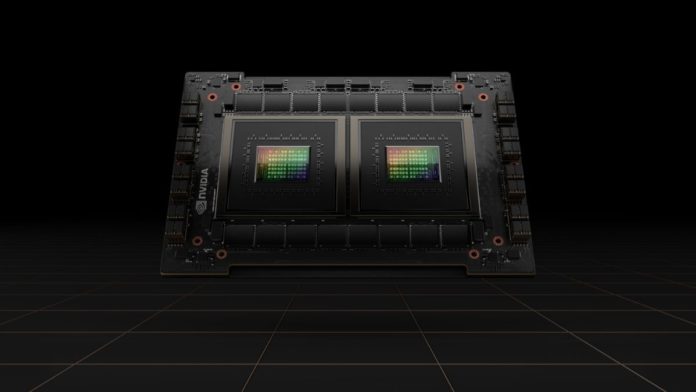In the recent GTC 2022 event, NVIDIA announced the launch of its new Arm Neoverse-based discrete data center CPU named NVIDIA Grace CPU Superchip.
The CPU has been specifically designed for artificial intelligence infrastructure and high-performance computing. NVIDIA claims that its Grace CPU Superchip offers two times the performance when compared with other similar options available in the market.
NVIDIA’s Grace CPU Superchip comes with two CPU chips linked together using NVIDIA’s novel high-speed, low-latency chip-to-chip interconnect, NVLink-C2C.
Read More: NVIDIA reveals Isaac Nova Orin to Accelerate Development of Autonomous Mobile Robots
According to NVIDIA, its computing software stacks, including NVIDIA RTXTM, NVIDIA HPC, NVIDIA AI, and Omniverse, will all run on the Grace CPU Superchip.
Founder and CEO of NVIDIA, Jensen Huang, said, “A new type of data center has emerged — AI factories that process and refine mountains of data to produce intelligence.” He further added that the Grace CPU Superchip combines the best performance, memory bandwidth, and NVIDIA software platforms into a single chip that will shine as the AI infrastructure’s CPU.
The Grace CPU Superchip is similar to NVIDIA’s Grace Hopper Superchip, which was the company’s first CPU-GPU combined module released last year. The similarity between the two chips include the CPU architecture, and the NVLink-C2C interconnect.
Grace CPU Superchip has 144 Arm cores in a single socket with a projected best-in-class performance of 740 on the SPECrate®2017_int_base benchmark. The powerful Grace Superchip is built on the latest data center architecture, Arm V9, which combines the best single-threaded core performance with compatibility for Arm’s new generation of vector extensions to provide unmatched performance.
Additionally, its revolutionary memory subsystem, which consists of LPDDR5x memory with Error Correction Code for the best balance of performance and power consumption, also provides industry-leading energy efficiency and memory bandwidth.
With the record performance, memory bandwidth, energy economy, and configurability, the Grace CPU Superchip will thrive at the most demanding high-performance computing, artificial intelligence, data analytics, scientific computing, and hyper-scale computing applications.


